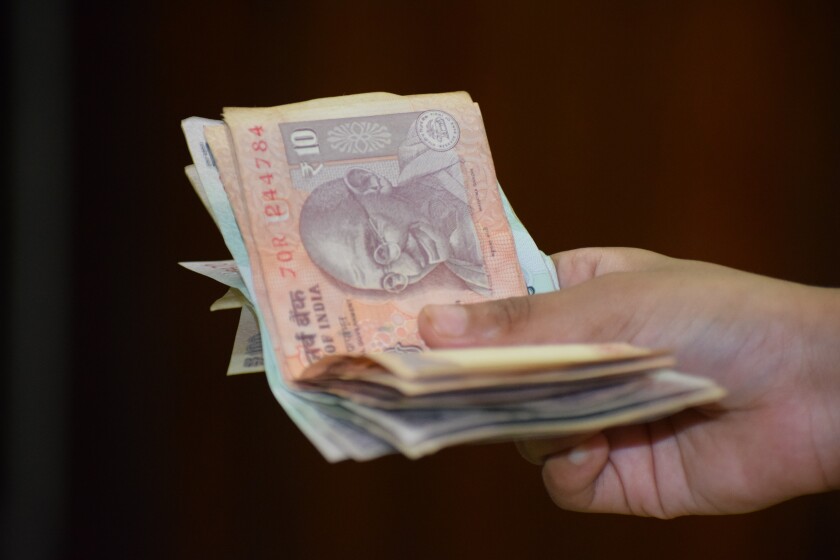Three amendments to India’s goods and services tax (GST) law through the Finance Act, 2023 have implications for global companies that are not registered for GST in India. In this article, the authors delve into the surrounding issues.
Transportation of goods to a place outside India
The Goods and Services Tax Council has extensively deliberated on the proposal to provide a level playing field to Indian shipping lines (ISLs) and foreign shipping lines (FSLs) by changing the place of supply (PoS) of goods transport services from the “destination of [the] goods” to “the location of [the] recipient”.
The law had previously put FSLs on a better footing, as the transportation of goods to a place outside India (outward goods transport agency, or GTA, services) procured by a GST-registered recipient from an FSL would not be taxable, whereas the same would be liable to GST if procured from an ISL.
To put ISLs and FSLs on the same footing, the following two amendments have been made:
The proviso under Section 12(8) of the Integrated Goods and Services Tax Act, 2017 (the IGST Act) states that where the supplier and the recipient of services are located in India, the PoS of the services by way of transportation of goods outside India is the destination of the goods. This proviso has been omitted through Section 161 of the Finance Act, 2023 with effect from February 1 2019. The proviso never served the objective behind its insertion, as the PoS being outside India would only make IGST leviable on outward GTA services provided to a registered recipient and it would not make the supply exempt from GST. Realising the same, outward GTA services provided by ISLs were specifically exempted from GST through Entry 19B of Notification No. 12/2017-CTR, dated June 27 2017, until September 30 2022. This exemption entry was inserted with effect from January 25 2018.
Section 162 of the Finance Act, 2023 omitted Section 13(9) of the IGST Act; i.e., the special PoS rule for services of transportation of goods other than by way of mail or courier, in cases where the location of the supplier of services or the location of the recipient of services is outside India. The PoS rule provides that the PoS for such services of transportation of goods would be the destination of the goods. Once Section 162 is notified, the PoS for such transportation services would be the location of the recipient and ISLs and FSLs would be on the same footing. All outward GTA services provided to a registered recipient would be subject to GST unless it is a free on board contract; i.e., when an unregistered overseas importer bears the outward GTA cost.
The ‘recipient’ is defined for GST purposes to mean a person who is liable to pay the consideration in cases where a consideration is payable for a supply. However, the Hon’ble Supreme Court in UOI v Mohit Minerals, 2022 VIL 30 SC held that the recipient of ocean freight services would be the Indian importer even in a cost, insurance and freight contract, where the overseas supplier bears the freight cost by placing reliance on the PoS provisions.
Considering such a trend, once the amendments are notified, it remains to be seen whether the Indian Tax Department alleges a taxable supply to exist in cases where freight charges are paid by an overseas group company directly to the FSL or ISL merely on the assertion that the supply is received by an Indian group company instead of the overseas group company.
Taxability of services as ‘OIDAR services’ widened
Section 2(17) of the IGST Act defined online information and database access or retrieval (OIDAR) services as being delivered over the internet or an electric network, and the delivery is essentially automated, involving minimal human intervention.
OIDAR services have unique GST implications. OIDAR service providers are liable to obtain compulsory registration and pay GST in India on supply to non-taxable online recipients (NTORs). However, if the recipient of OIDAR services is a person registered for GST in India, they will be liable to pay IGST under a reverse-charge mechanism. For example, a US-based content streaming service provider is liable to obtain compulsory GST registration in India if it is supplying OIDAR services to an NTOR and the service provider is liable to pay GST in India.
Section 160 of the Finance Act, 2023 has amended the definition of OIDAR services to dispense with the requirement of an OIDAR service being “essentially automated and involving minimal human intervention”.
Section 160 has also substituted the definition of an NTOR under Section 2(16) to cover any unregistered person.
Furthermore, an explanation has been added to Section 2(16) to clarify that any person who has taken registration solely under Section 24(vi) of the Central Goods and Services Tax Act, 2017 (i.e., persons who have registered only for the deduction of tax deducted at source under Section 51) will also be considered an unregistered person for the purpose of the definition of an NTOR. Previously, the definition of an NTOR covered any government, local authority, governmental authority, individual or other person not registered and receiving OIDAR services in relation to any purpose other than commerce, industry or any other business or profession, located in taxable territory.
The impact of these amendments is far reaching. Once the requirement of minimal human intervention is removed as an ingredient to qualify as OIDAR services, the scope of the same is widened. Online education services, online test services, etc. – which were earlier argued to be outside the scope of OIDAR services due to the role of human resource persons, evaluators, etc. in providing said services – may fall within the amended definition of OIDAR services.
Considering the compulsory registration requirement irrespective of the monetary value of the supplies provided, it is possible that every supplier of OIDAR services to NTORs in India would be subject to scrutiny by the Indian Tax Department. Furthermore, once the amended NTOR definition is notified, the supplier would be liable to pay GST on OIDAR services in all cases where the services are provided to an unregistered person, with no regard to the purpose of procuring such service.
Considering how OIDAR service providers may never have a fixed establishment in India, how the Tax Department would manage to locate OIDAR service providers and attach tax liability to them remains to be seen.
Insertion of a separate set of offences for e-commerce operators
Section 155 of the Finance Act 2023 has inserted a new sub-section (1B) in Section 122 of the Central Goods and Services Tax Act, 2017. Accordingly, a penalty can now be imposed for the following offences committed by an e-commerce operator (ECO):
Allowing the supply of goods and/or services through it by an unregistered person, unless the person is exempt from registration in terms of any GST notification;
Allowing inter-state supply of goods and/or services through it by a person who is not eligible to make such supplies; and
Failing to furnish the correct details in Form GSTR-8 in relation to any outward supply of goods effected through it by a person exempted from obtaining registration under this act.
If any of these offences are committed by an ECO, it becomes liable to pay a penalty of INR 10,000 (approximately $122), or a sum equivalent to the amount of tax involved, had such supply been made by a registered person other than a person paying tax under Section 10, whichever is higher.
In light of the insertion of specific offences for ECOs, ECOs the world over with Indian operations are required to review the impact of these amendments on them. ECOs would be required to put in place governance mechanisms to ensure suppliers making supplies through the ECOs are duly registered and are paying GST (if required under GST law). Foreign-based marketplace models of ECOs that have Indian suppliers fulfilling orders for customers are required to pay special attention to the amendments and their requirement to obtain registration and meet tax collection at source obligations.
Next steps
Section 1(2)(b) of the Finance Act, 2023 provides that sections 128 to 163 shall come into force on such date as the central government may, by notification in the Official Gazette, nominate. Thus, the above amendments would come into force only when sections 155 and 160–62 of the Finance Act, 2023 are notified. It is imperative for companies to review the impact of these amendments on their business operations before they come into force.














